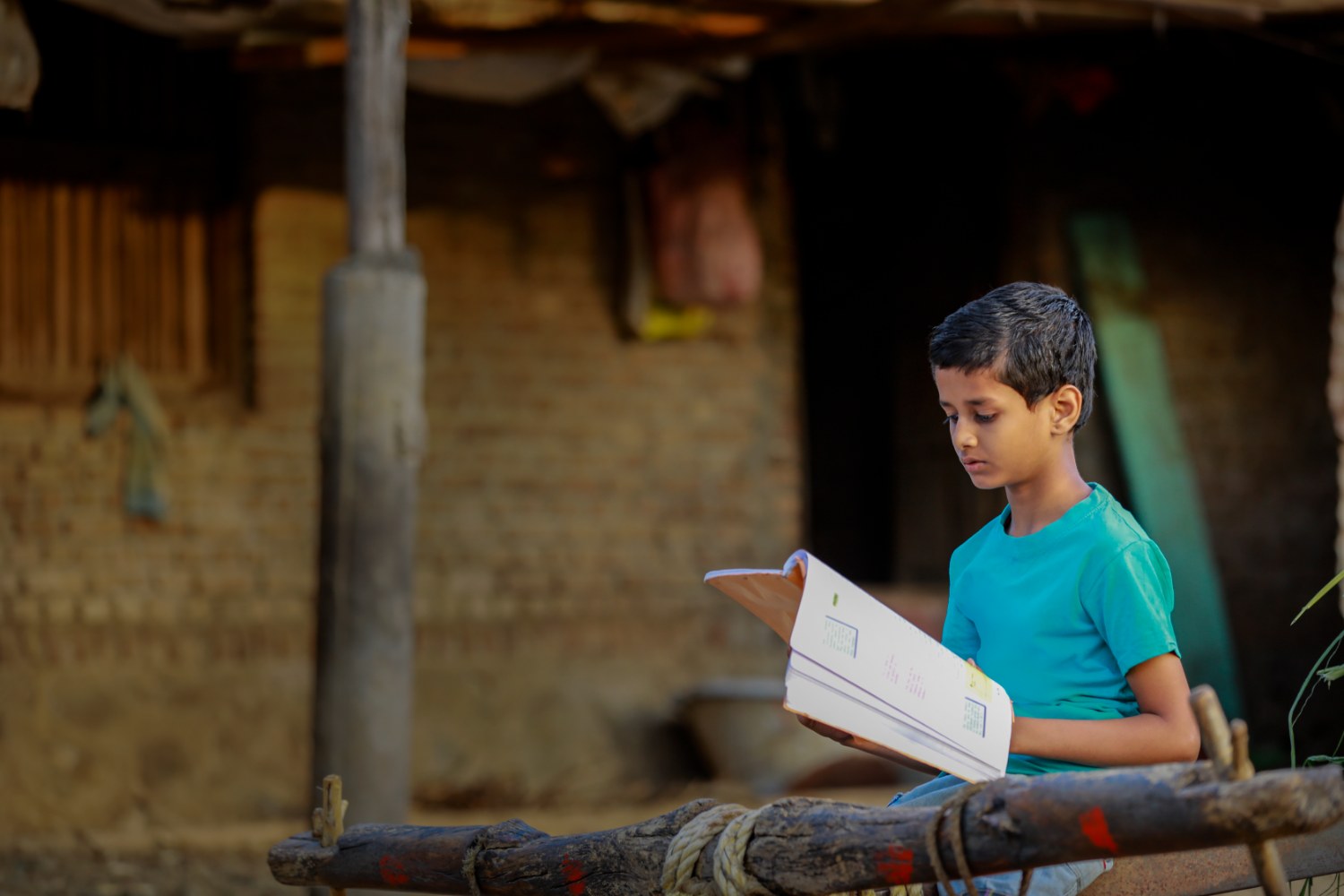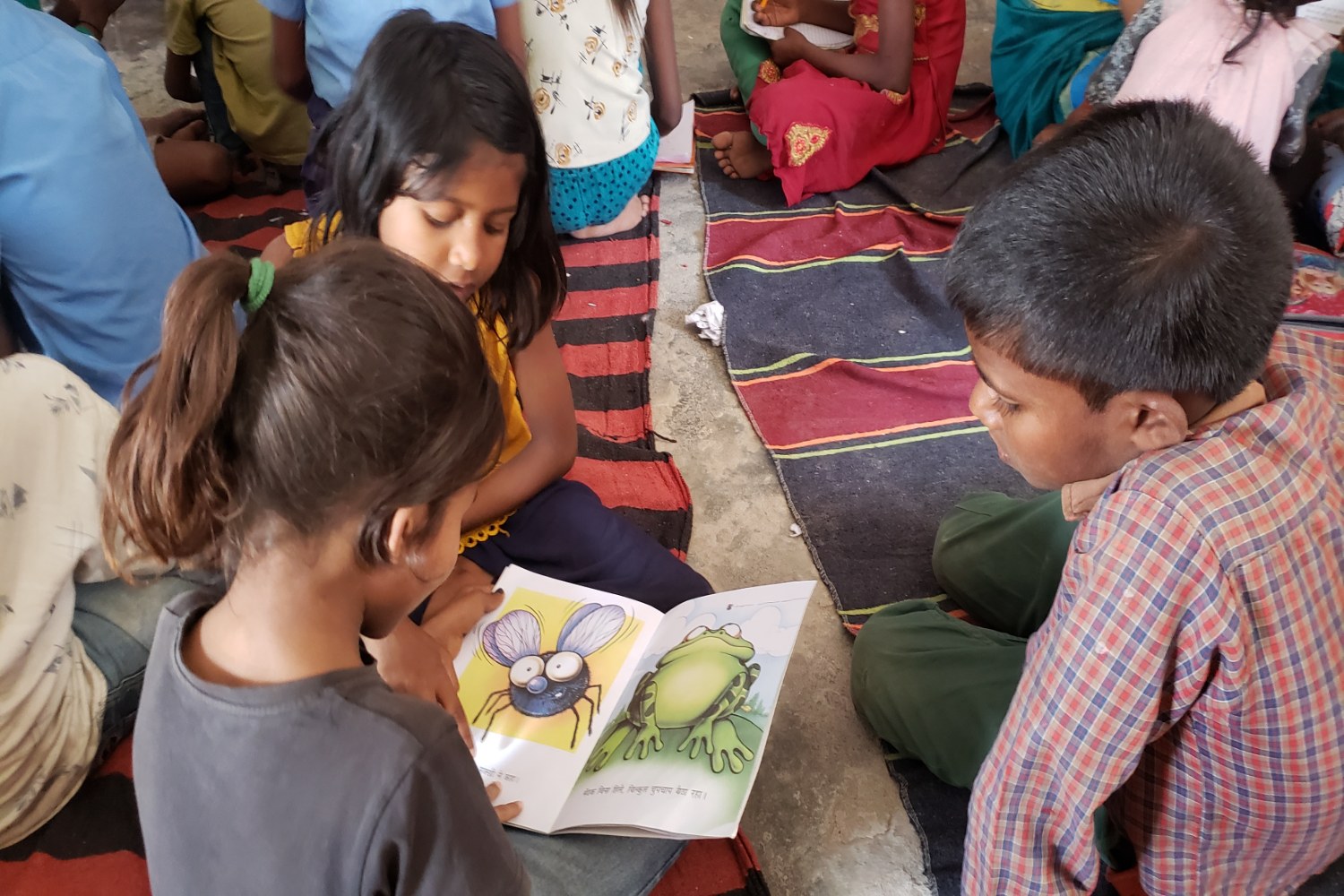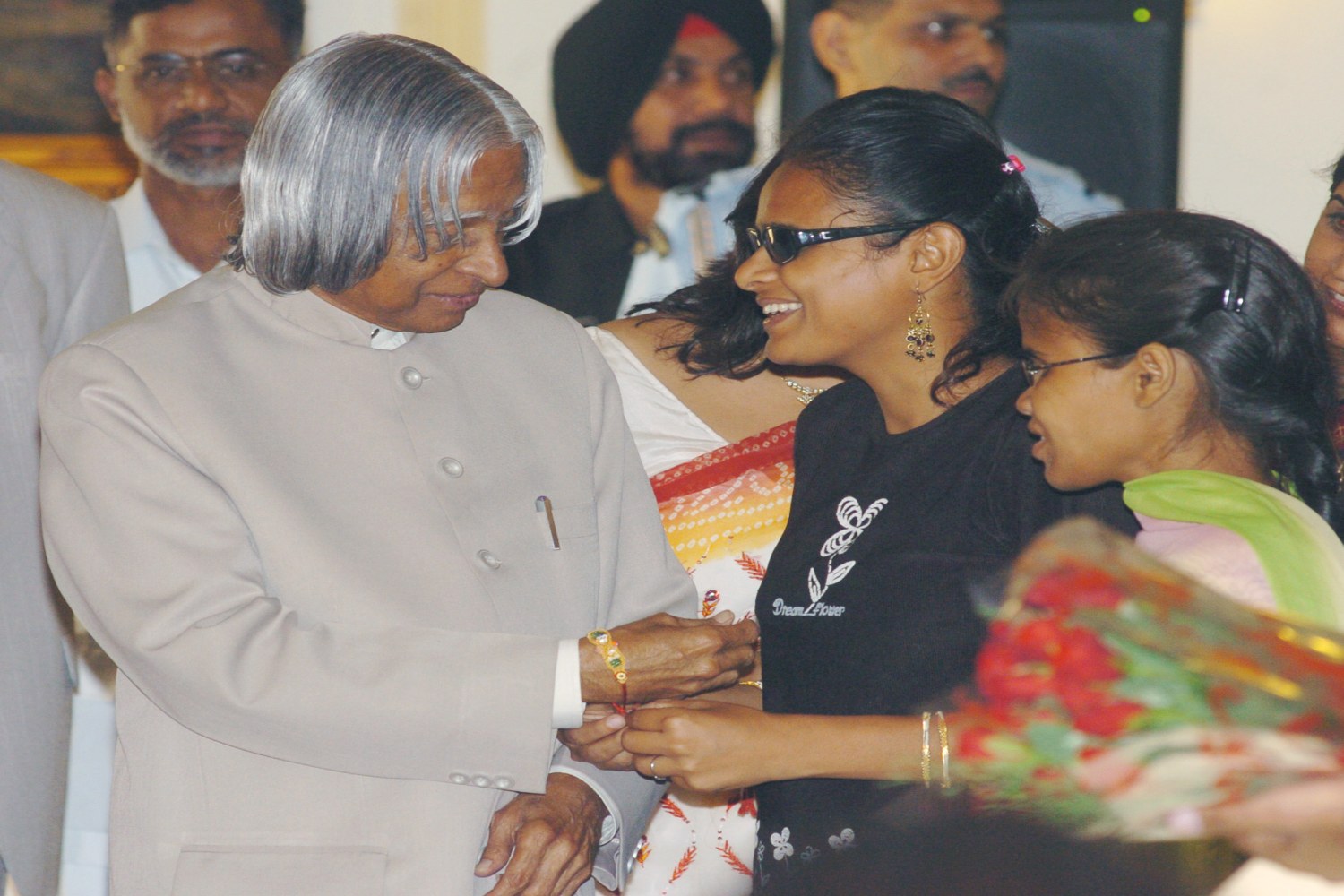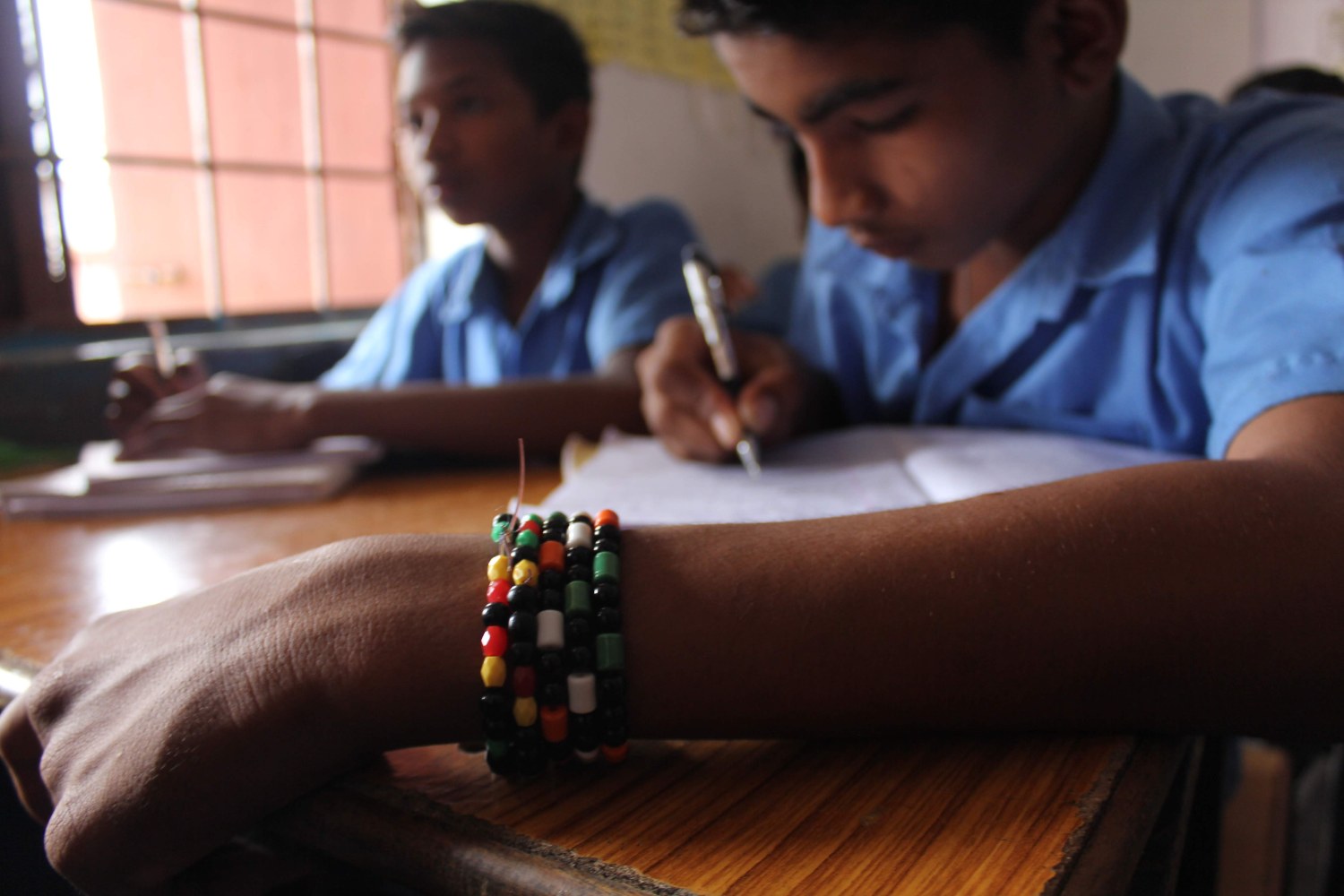A Promising Future of Teacher Education – The Vision of National Education Policy (NEP) 2020
In ‘A Promising Future of Teacher Education,’ Gomathi Jatin demonstrates how the provisions of NEP create an enabling framework for teacher education and shows how its proper implementation will go a long way in meeting the shortage of good quality teachers in the country.

Today we are living in a world engulfed in challenges and issues in every sphere of life. To enable a sustainable safe space of peace and prosperity for people across the planet, the United Nations Member States in 2015, adopted the 2030 Agenda for Sustainable Development, at the heart of which are 17 Sustainable Development Goals (SDGs). Education is very essential for overall development of human personality. It is the key to prosperity and opens a world of opportunities, making it possible for individuals to contribute to a progressive, healthy society. Education is at the heart of the 2030 Agenda for Sustainable Development and it is identified as a stand-alone goal – SGD Goal 4, i.e., ‘Quality Education’ (UN, 2015).
Rigorous monitoring and review of the teacher education sector is proposed in the policy by initiating mandatory accreditation of TEIs by the National Assessment and Accreditation Council (NAAC).
National Education Policy 2020 envisages quality education that is relevant and applicable within the context of the dynamic and fast-changing nature of the education space in India and the world. This was an attempt to fulfil the unfinished agenda of the previous education policies, since we have left behind quality education while largely trying to address the issues of access and equity in education (NEP, 2019, p. 26).
Fulfilling such a huge responsibility will not be possible without committed schoolteachers and faculty in higher education institutions who will be the pioneers of transformation of the education system (NEP, 2019, p. 31). To be a practitioner in the field of education and achieve SDG goals, one needs to be able to set clear goals, translate these goals into sound curriculum and pedagogy and create meaningful opportunities for learners. For this, teachers need to be adequately prepared. Thus, teacher education is very crucial in preparing teachers to shape the next generation that can contribute to the country’s social, economic and political transformation (NEP, 2019, p. 27-28).
Addressing Deficits in the Teacher Education System
It is very unfortunate that the teacher education sector has been encountering multiple challenges including sub-standard teacher education institutions (TEIs), functioning in silos and lacking commitment to the need for rigour and quality in teacher preparation.
The duration of teacher education programs range from nine months to two years and very few institutions offer the four year integrated Bachelor’s Degree in Education. However, if we carefully look back into the past, a similar model of four year integrated programs was undertaken in the four regional training colleges (now called as RIEs) to bring about improvements in teacher training, both inservice and pre-service.
These programs were envisioned with a purpose of offering high quality teacher training and were under the governance of National Council of Educational Research and Training (NCERT). Since then there have been many committees that have reviewed these programs. Many structural changes have taken place in the RIEs as well, based on the recommendations provided by these committees.
NEP 2020 foresees the positive impact of technology use and integration. It has made provisions to support and adopt interventions by creating an autonomous body, the National Educational Technology Forum (NETF).
Though NCERT is committed to the cause of school education in the country, there have been major setbacks in achieving the main purpose of quality. Moreover, with the implementation of National Policy on Education 1986 and the emergence of National Council of Teacher Education (NCTE) as a Statutory Body in 1993, NCERT’s functioning also underwent changes. Many pre-service courses such as the four-year B. A. B.Ed. and two-year M.Sc. Ed. Courses got discontinued (Parida, B. K., 2016).
Teacher education curriculum is largely theoretical and disconnected from school education. This is due to lack of practical and innovative curriculum, pedagogy and assessment. The teaching methods and pedagogy in TEIs are misaligned with school teaching and pedagogy. This creates a big gap between what is taught in TEIs and what needs to be practiced in schools.
There is a huge failure on the part of existing teacher education programs in preparing competent and effective teachers, thus impeding the quality of education. Dearth of good faculty in TEIs leads to poor supervision and mentoring of teacher trainees. Over and above, weak partnerships with schools do not provide schoolteachers the agency in preparation of teacher trainees.
Content knowledge is another big concern when it comes to preparing teacher trainees for subject specific pedagogies. TEI faculty are largely not equipped with subject specific content and pedagogy, thus failing to prepare teacher trainees for the same. This necessitates a multidisciplinary approach to teacher education.
Technology integration into the content is another area where TEI faculties lack the necessary competencies and skills. The current pandemic scenario has catalysed the deterioration of the teacher education system, especially due to the extensive use of technology, which majorly lacked meaningful purpose within these processes.
The pandemic resulted in a transition to online teaching, which proved detrimental to the quality of education. Neither schoolteachers nor teacher educators were equipped with technological skills and competencies to navigate through online teaching processes. The preparation of teacher trainees in this crucial period underwent boundless challenges in aspects of content, pedagogy, digital literacy and technology integration into content.
Research is very critical to the development of quality education. Yet, the research and innovation investment in India is currently only 0.69% of GDP. This compares poorly with 2.8% in the United States of America, 4.3% in Israel and 4.2% in South Korea (NEP, 2020, p. 45). TEI faculty are largely withdrawn from research practices in the field of teacher education in particular and education in general. There is a lack of networking and collaboration among the TEI faculties and with experts in the field of education. This leads to professional and intellectual isolation from the wider spectrum of education.
In addition to all these issues, the rate of increase in the number of teacher education institutions is alarming. There has been a substantial entry of the private sector that now has about 92% of the TEIs. A few of these have been shut down due to regulatory non-compliance. However, new TEIs in the private sector are also springing up. However, the growth in the government institutions or government-aided private institutions is rather negligible.
Despite the large number of TEIs, the quality of teachers produced is quite unsatisfactory. The claim of Central Advisory Board on Education (CABE) in the 2016 report that “the teacher education space in India is dominated by private players, offering courses of doubtful quality” still remains unchanged (Tilak, J.B. et al. 2021).
Furthermore, there are very few institutions offering M.Ed. with intake in very low numbers. All universities do not necessarily have departments of education and the number of candidates produced by the university departments and government post-graduate colleges along with private institutions is grossly insufficient to meet the requirements of teacher education.
NCTE, the main regulatory body in teacher education, has not been able to check the proliferation of low quality teacher education institutions, or to ensure the quality of teacher education programs. Weak governance of NCTE has led to the downfall of the whole education system.
The Indian context is widely diverse, characterized by differences along the axes of culture, language, religions, caste, gender, etc. This adds to the challenges of the teacher education system. Teachers’ beliefs and attitudes curb their sense of responsibility and their ability to be sensitive and responsive to society’s demands.
NEP 2020: Way Forward
NEP 2020 has proposed radical changes by bringing in place systemic reforms to restore the integrity and credibility of the teacher education system. This policy marks the importance of the teacher education sector at par with high-level services such as medicine and law, where people’s lives are at stake (NEP, 2019, p. 283).
The vision of NEP 2020 is to bring in reforms in the existing teacher education structure and practices by moving it into the university system.
The vision of NEP 2020 is to bring in reforms in the existing teacher education structure and practices by moving it into the university system. This move envisages to situate teacher education in a multidisciplinary space wherein teachers can acquire a blend of high quality content, pedagogy and research. Such a space will enable teacher trainees in pre-service teacher training to interact with peers from other disciplines, making them professionally competent as teachers.
The policy introduces a complete restructuring of the teacher education system by proposing a four year integrated B.Ed. program of pre-service teacher education for different levels of schooling. This is proposed to be offered at the university level as a dual-degree i.e. in education with any desired specialized subject (NEP, 2019, p. 287). This is very much similar to the RIE model of four year integrated programs, which are very few in number in the country. There was a recommendation by NCTE in 2014 to introduce four-year integrated B.A. B.Ed. and B.Sc. B.Ed. courses throughout the country to enable these to gain wide recognition.
With the purpose of strengthening teacher education in the country, NEP 2020 has proposed the restructuring of TE system on the same lines as the Regional Institute of Education. It also provides multiple entry-exit options and flexibility in program structure. NCERT and RIEs have been given the responsibility of planning innovative programs to prepare more effective teacher educators and short-term, discipline-specific programs to prepare more effective teachers for various levels (Parida, B. K., 2016).
There is a huge failure on the part of existing teacher education programs in preparing competent and effective teachers, thus impeding the quality of education.
The restructuring of the existing teacher education system aims to break the isolation of TEIs as stand-alone institutions. It envisages them becoming multidisciplinary higher educational institutions by 2030. This will enable the provisioning of holistic and complete education for teacher trainees.
They will then be able to impart such holistic and complete education to school children, ensuring high quality education as envisaged in SDG 4. The pedagogical aspects of the proposed four-year programs includes diversity training to enable teacher trainees to become sensitive and responsive to the larger diversity of our Indian context (NEP, 2019, p.136).
The NEP reforms in teacher education curriculum have the potential to cater to a multilevel discussion-based and constructivist learning along with the development of 21st century skills and abilities in teacher trainees amongst many other components. University-school partnership will be another key feature of this revitalization. Potential teachers will be able to hone the desired skills and obtain practical teaching experiences in the schools affiliated to the B.Ed. institutions (NEP, 2019, p. 133).
A very interesting and unique feature of this revamp will be the mentoring teachers from the school where trainee teachers will intern. This will give a very special and important status to schoolteachers. Along with teacher educators from TEIs, this will enable schoolteachers to share the agency in guiding and preparing teacher trainees (NEP, 2019, p. 136).
NEP 2020 also addresses the shortage of teachers by proposing the recruitment of adequate specialized instructors for specialized subjects. They are supposed to teach in a school or a school complex. They will be trained through programs offered by the school complex itself. This will strengthen community partnerships to support school education (NEP, 2019, p. 135).
NEP 2020 foresees the positive impact of technology use and integration. It has made provisions to support and adopt interventions by creating an autonomous body, the National Educational Technology Forum (NETF). This new body has the mandate to facilitate decision making on the induction, deployment and use of technology (NEP, 2019, p. 343). The policy recommends various initiatives for leveraging technology for teaching-learning at all levels from school to higher education (NEP, 2020, p. 59). These initiatives are opportunities for the teacher education sector to strengthen the Technological Pedagogical Content Knowledge (TPACK) framework in the teacher education curriculum. These also promise to prepare teacher trainees for the successful integration of technology in teaching (Schmidt et al., 2009).
The policy also creates a new niche for research and development as a culture in universities and colleges. It envisions teacher preparation to take place in centres of research and field action, offering a dynamic and stimulating culture of research and innovation. The policy promotes research based teaching and specializations to ensure the development of knowledge and practices relevant to the contexts of school and higher education. It places strong value in the faculty profile in departments of education to be diverse in teaching and research to strengthen multidisciplinary education of teachers and provide rigour in conceptual development.
Restructuring of Ph.D. programs by including exposure to pedagogical practices, designing curriculum, credible evaluation systems, communication teaching, in addition to research, is another important feature of this policy (NEP, 2019, p. 290-292). To bring in a synergistic transformation towards the growth of quality research, NEP 2020 aims to establish a National Research Foundation (NRF) to enable a culture of research in departments of education and higher education (NEP, 2020, p. 46).
Rigorous monitoring and review of the teacher education sector is proposed in the policy by initiating mandatory accreditation of TEIs by the National Assessment and Accreditation Council (NAAC). Constitution of apex bodies like the Rashtriya Shiksha Aayog (RSA) and National Higher Education Regulatory Authority (NHERA) to regulate the teacher education system, is also seen as a positive step towards revamping the teacher education system (NEP, 2019, p. 294).
The effectiveness of any policy will depend on whether it is implemented appropriately, how is it implemented, to what extent is it implemented and is the implementation resulting in desired outcomes. This will need multiple actions to be taken by various bodies in a systematic manner. These bodies include MHRD, CABE, Union and State Governments, education-related Ministries, State Departments of Education, Boards, NTA, the regulatory bodies of school and higher education, NCERT, SCERTs, schools, and HEIs.
Along with following up with timelines and plans for review, these bodies need to ensure that the policy is implemented in its spirit and intent, through coherence in planning and synergy across all these bodies involved in education (NEP, 2020, p. 62). Higher education institutions including TEIs must be strongly invested in initiating potential opportunities offered by the NEP 2020 to achieve its vision and a larger goal (Goal 4: Quality Education) of the SDG 2030 agenda.
Personal Experiences at Centre of Excellence in Teacher Education (CETE)
Working with Promises offered by NEP 2020 and CETE’s Vision: CETE is an independent Centre at the Tata Institute of Social Sciences, Mumbai. This Centre, established in 2015 as Centre for Education, Innovation and Action Research, CEIAR, has been engaging with, and promoting innovation in school curriculum, teacher education and higher education curriculum and pedagogy. CETE works towards revitalizing the education sector through research, academic programs, teaching, field action, policy advocacy, partnerships and collaborations.
CETE envisages its role as a ‘Catalyst for Transformation in Teacher Education’ through multiple activities. It offers long term and short-term pre-service and in-service programs in education, to teachers across India and beyond. True to approaching the NEP 2020 vision, CETE has a multidisciplinary team involved in research, teaching and field action, in education.
Creating Quality Learning Experiences through Pre-service Pedagogical Practice: CETE offers a three-year Integrated B.Ed. M.Ed. program (Innovative) in addition to other Master’s programs and short-term programs in the discipline of education. Aligned with NEP 2020’s vision, the teacher preparation curriculum at CETE encompasses the rigour of discussion-based and constructivist learning components including key areas like foundational literacy/numeracy, inclusive pedagogy and evaluation, and the development of 21st century skills such as problem-solving, critical and creative thinking, ethical and moral reasoning, and communication and discussion abilities amongst others. The diversity of faculty profiles in CETE caters to the multidisciplinary nature of the program.
Internship component of the teacher preparation program is designed to view theory and practice as a single continuing process. Strong partnerships with interning schools are perceived as the pillar of the program. Teachers of these schools are assigned the role of mentors to teacher trainees who are also guided by their respective pedagogy faculties at CETE. Mentoring is one of the most significant process in the preparation of teachers.
Collaborative learning processes are very prominent in the academic functioning of CETE. Peer learning, buddy system, and other collaborative learning techniques are the primary elements of the teaching-learning processes. There are also a number of Communities of Practice (CoPs) functioning across many of the programs offered at CETE. Faculty and students engage actively in the CoPs on various aspects related to education.
Research and technology are other important ingredients of teaching learning at CETE. Students gain opportunities to work collaboratively with faculty on various research projects. Use of technology and its integration is another notably visible area for which CETE has been acknowledged repeatedly.
The teacher preparation program at CETE focusses on creating quality learning experiences for teacher trainees. It provides opportunities for rich pedagogical practice and builds students’ capacities in every aspect of life.
CETE Achievements on This Pathway: CTET’S Connected Learning Initiative has won international recognition through the UNESCO King Hamad Prize in the use of ICTs in Education (2018, March). This initiative also won the OER Collaboration Award for Excellence 2019. Its international collaborative research in various areas of professional development, policy and financing in education provide a rich network of scholars and scholarship relevant to the global south.
Note:
This article is a review of the prevailing challenges in the teacher education (TE) sector and National Education Policy 2020’s recommendations to bring about improvement in the TE space. It is solely the author’s reflections and opinions and is an attempt to apprise and caution the stakeholders of TE to delve with the policy and bring about possible changes for improving the quality of teacher education.
References
Draft National Education Policy 2019, https://innovate.mygov.in/wpcontent/uploads/2019/06/mygov15596510111.pdf
National Education Policy 2020. https://www. mhrd.gov.in/sites/upload_files/mhrd/files/nep/
NEP_Final_English.pdf. Retrieved on 01/08/2022.
Parida, B. K. (2016), From RCE to RIE and beyond: A journey of half a century. Retrieved from https://www.riebbs.ac.in/images/documents/rie%20history.pdf
Schmidt, D.A., et al. (2009). Technological Pedagogical Content Knowledge (TPACK): The Development and Validation of an Assessment Instrument for Preservice Teachers. Journal of Research on Technology in Education, 42 (2), 123-149.
Tilak, J. BG., & Bandyopadhyay, M. (2021). Teachers and Teacher Education in India: Issues, Trends and Challenges. Available at SSRN: https://ssrn.com/abstract=3881778 or http://dx.doi.org/10.2139/ssrn.3881778
UN General Assembly, Transforming our world: the 2030 Agenda for Sustainable Development, 21 October 2015, A/RES/70/1, available at: https://www.refworld.org/docid/57b6e3e44.html [accessed 3 August 2022]
https://tiss.edu/view/6/mumbai-campus/centre-of-excellence-in-teacher-education/about-us-11/




No approved comments yet. Be the first to comment!